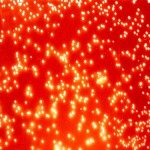Lien vers Pubmed [PMID] – 30483997
Lien DOI – 10.1007/s10096-018-3431-3
Eur J Clin Microbiol Infect Dis 2019 Mar; 38(3): 427-448
The need to identify highly related bacterial strains is ancient in clinical, industrial, or environmental microbiology. Strategies based on different phenotypic and genotypic principles have been used since the early 1930s with variable outcomes and performances, accompanying the evolution of bacterial features’ knowledge as well as technologies, instruments, and data analysis tools. Today, more than ever, the implementation of bacterial typing methods that combine a high reliability and accuracy with a rapid, low-cost, and user-friendly performance is highly desirable, especially for clinical microbiology. FT-IR developments for bacterial discrimination at the infra-species level settled on the identification of bacterial groups previously defined by phenotypic or genotypic typing methods. Therefore, this review provides a brief historical overview of main bacterial strain typing methods, and a comprehensive analysis of the fundamentals and applications of Fourier transform infrared spectroscopy, a phenotypic-based method with potential for routine strain typing. The different studies on FT-IR-based strain typing of diverse Gram-negative and Gram-positive bacterial species are discussed in light of genotypic, phenotypic, and biochemical aspects, in order to definitively give this methodology credit to be widely accepted by microbiologists. Importantly, the discriminatory biochemical fingerprints observed on FT-IR spectra have been consistently correlated with sugar-based coating structures that besides reflecting strain variation are also of high relevance for the specificity in pathogen-host interactions. Thus, FT-IR-based bacterial typing might not only be useful for quick and reliable strain typing but also to help understanding the diversity, evolution, and host adaptation factors of key bacterial pathogens or subpopulations.

